Barbie: ‘Who are you calling a doll?’
IT has been a watershed year for women. Now, on the eve of International Women’s Day, an unlikely ally in the form of a doll joins the revolution.
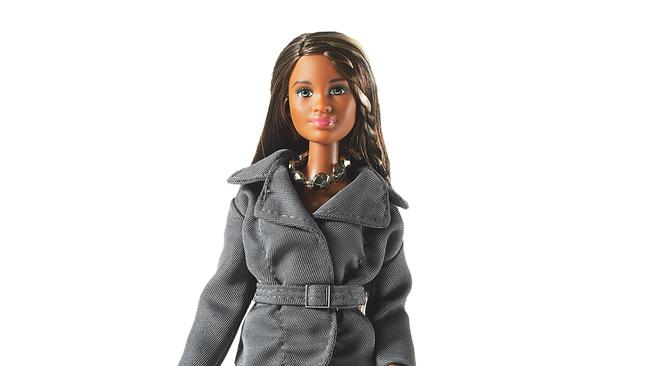
Stellar
Don't miss out on the headlines from Stellar. Followed categories will be added to My News.
OCTOBER 5, 2017 is stamped on the memory of sex discrimination commissioner Kate Jenkins. It is the date Harvey Weinstein’s serial sexual harassment of young actresses finally caught up with him, triggering an avalanche of change that — five months later — is only gaining force.
That a once-untouchable Hollywood heavyweight was felled by behaviours tolerated in his industry for almost a century is a watershed Jenkins, among others, believes will have huge and lasting impact. Far from being a celebrity-driven fad, it turns out #MeToo and #TimesUp, the hashtag movements that sprang up after Rose McGowan and Ashley Judd told their stories to various American news outlets, would end up ushering in the year that women fought back — male allies at their sides.
In Sydney, a drove of women who were formerly too reluctant to speak claimed they experienced sexual harassment and inappropriate behaviour while working for Don Burke’s CTC production company. Burke has denied the claims.
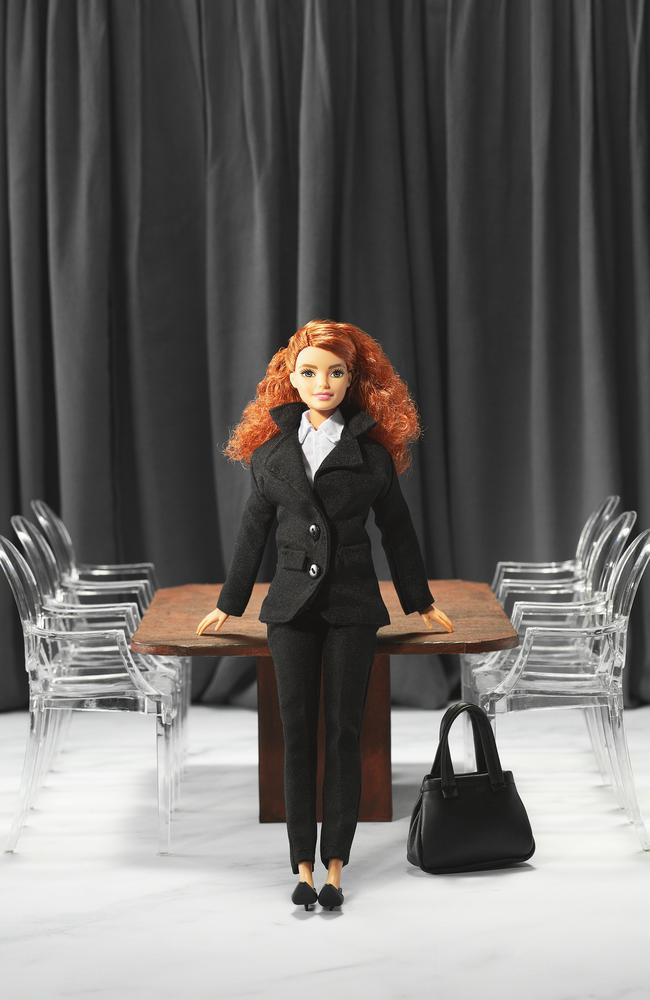
In Melbourne last month, the City Council held its first meeting since high-flying Lord Mayor Robert Doyle was accused of sexual harassment by two women. While Doyle has strongly denied the claims, investigations are continuing into the allegations made by a third woman. The meeting was marked by the attendance of women donning black to show their support of #TimesUp. That small but symbolic gesture pointed to what Jenkins believes is a movement that will produce a more equal society.
Workplaces across the country are scrambling to remind employees and managers of harassment and discrimination policies, and realising that if they are not seen to be ushering in equal access for women at all levels, they will be left behind. “I do think we are at a pivotal time, a real turning point on sexual harassment, from my role’s perspective and in private conversations,” says Jenkins, whose job provides access to decision makers across Australian industries. “I know the date the Weinstein story broke because the public conversation around it has not stopped since. This is a really different experience from past sexual-harassment scandals.”
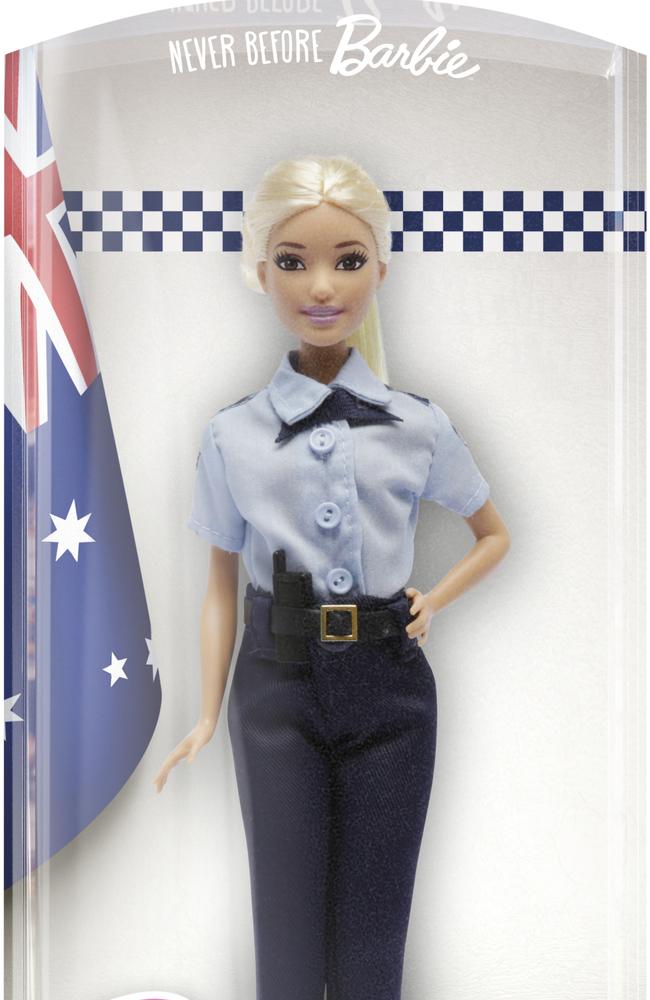
HOW workplace sexual harassment is handled matters because it can change the course of women’s careers, and create cultures where women do not rise as their talent merits, Jenkins argues. A key difference of the discussion post-Weinstein is that the impact of events seen as “the small stuff” — offences that are not considered the most grave sexual crimes, such as rape and severe sexual assault — are being taken seriously.
“I remember men saying to me how surprised they were to see female friends starting to post #MeToo stories on their Facebook feeds,” Jenkins tells Stellar. Her office has a major piece of work around harassment planned for 2018. “It has engaged a much bigger audience, who have really changed their perspective from, ‘Stop making a fuss,’ to ‘Actually, I think I haven’t properly understood what this phenomenon is.’”
Stalwart second-wave feminist and Studio 10 co-host Ita Buttrose says positive changes across her long career include the fact that young mothers are no longer made to feel choosing to work attracts stigma. Yet on the minus side, she notes, Workplace Gender Equality Agency figures show women are still thin on the ground in the powerful jobs. “Only 12.9 per cent of chairs are women, 24.7 per cent of directorships and about 16 per cent of CEO positions are held by women,” Buttrose tells Stellar. “It’s really not good enough. I think there was an assumption by early feminists that if we raised our sons and daughters the right way — especially our sons — by now we would have had 50/50 representation in those areas. But it hasn’t been like that.
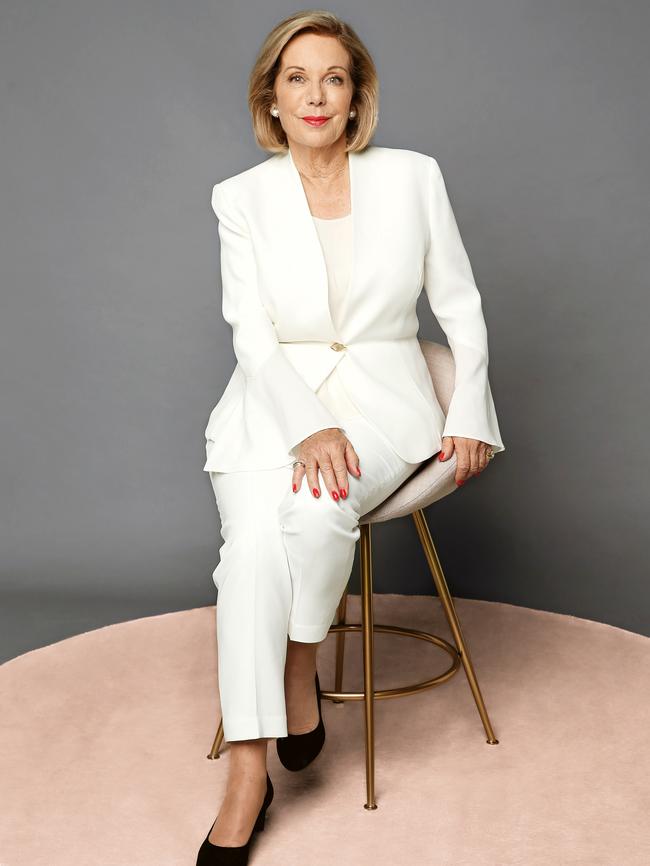
“One of the biggest areas in which women are still under-represented is in the Parliament.” And as Buttrose points out, “That is where you make significant changes.” She describes the huge gap in gender representation (there are only 73 women, or 32 per cent, across the houses) as “pathetic”. “As long as we’re under-represented in that important platform of decision-making, it’s very difficult to change things,” she says. “When women have some clout they can encourage others to change.”
Prime Minister Malcolm Turnbull’s recently installed Minister for Women, Kelly O’Dwyer, put her clout behind change even before she added the portfolio to her other roles as Minister for Revenue and Financial Services, and Minister Assisting the Prime Minister for the Public Service shortly after the Weinstein scandal broke. She was the first woman to hold a treasury portfolio and the first cabinet minister to have a baby while in office — her son Edward is the first to have been breastfed during a cabinet meeting.
She tells Stellar she sees the potential value in campaigns such as #MeToo and #TimesUp because they are “shining a light on bad and illegal behaviour — and I hope giving victims the courage to speak up while causing others to reconsider their own conduct. I completely agree with the Prime Minister that the foundation for equality is respect for women. This begins with all of us.
“While it was not a conscious aim, I am proud that I am the first Australian woman to hold a treasury portfolio and the first female to have a baby while serving as a cabinet minister.”
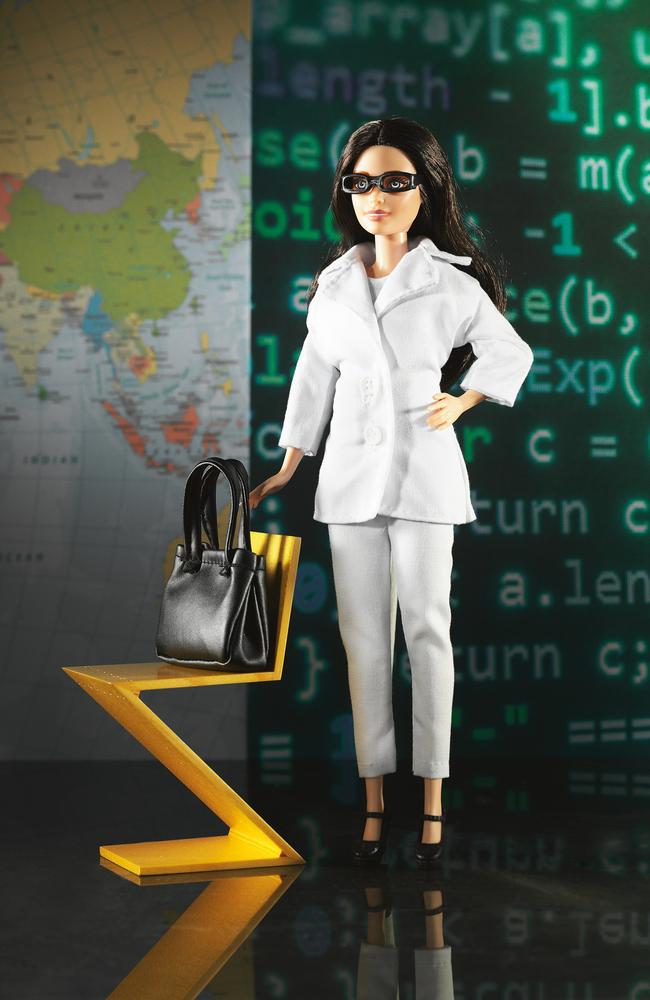
The sudden embrace of female power and influence is even filtering through to big commercial enterprises such as toy manufacturer Mattel, which in 2018 is marking International Women’s Day (it is celebrated on March 8 every year) with a limited edition range of Barbie dolls that represent roles in Australian public life that women have never held. The goal is to challenge any lingering ideas that those jobs should remain exclusive to men.
The Never Before Barbie dolls will feature a female Chairman of the AFL, a Commissioner of the Australian Federal Police, a First Woman On The Moon, a Governor of the Reserve Bank, a Head of ASIO, and a President of the Australian Olympic Committee, none of which have ever been held by women in this country.
Mattel marketing director Chedney Rodgers believes that putting Barbie dolls who represent occupations that women have never been given a chance to occupy into the hands of little girls is one way to counter the idea that “you can’t be what you can’t see”.
“These dolls have been created to spark a conversation around lack of gender diversity in senior leadership positions,” Rodgers says. “We want to help young girls move beyond historical gender inequality and ultimately inspire them to believe in themselves.”
For Buttrose, the frontwoman for the range of glass-ceiling-smashing toys, the philosophy is simple: raise girls with the notion that there’s nothing they can’t do if they put their minds to it — and the message will get through.
“I used to tell my daughter that you can do anything you want to — she thought about being a nurse and I said, ‘What about being a doctor?’” Buttrose remembers. “She said, ‘Can girls be doctors?’ I said, ‘Sure — they can be anything they want to be!’ She said, ‘Well, I’ll be a fireman.’ She is an architect... If little girls grow up seeing Barbie being the chairman of the AFL, then that’s fantastic. If you look at girls, they play with characters and put them into their imagination and it becomes second nature: ‘Why shouldn’t I become a president, an astronaut?’”
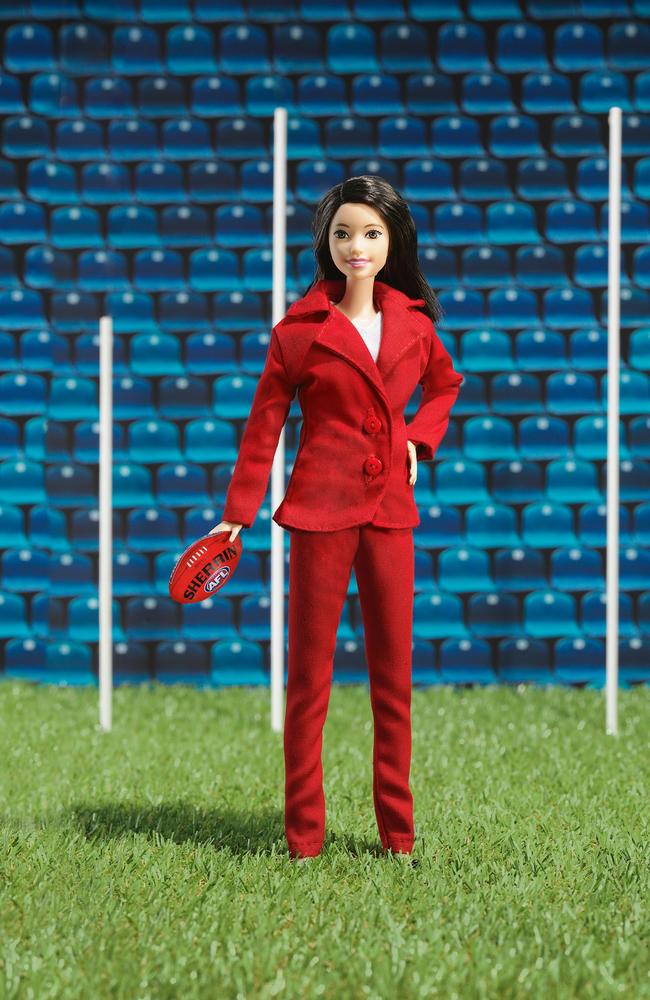
Workplace Gender Equality Agency director Libby Lyons says employers and employees she meets around the country are seeing signs of serious cultural change in Australia. “I certainly feel the momentum,” she tells Stellar. “The whole #MeToo campaign is shining a light on a culture that has been accepted in workplaces for a long time, and that senior people have turned a blind eye to for many reasons; maybe it was too hard, maybe they didn’t believe it.
“One of the things that has come out of our data for the fourth year running, though, is there has been no change in the number of women on boards. Accountability starts at the top and flows down into the executive — if we don’t see improvement in the number of women on boards and as CEOs and in senior leadership roles, then I am concerned progress will remain at a snail’s pace.”
Professor Catharine Lumby is an academic, author and gender adviser to the NRL. She says the latest burst of energy behind gender equality has given women a vital “collective voice”. Like Lyons and Buttrose, though, she says until women can be seen to be thriving to equal standards of pay, conditions and seniority enjoyed by Australian men, and feel safe in their workplaces, then movements of its ilk still have a lot of work to do.
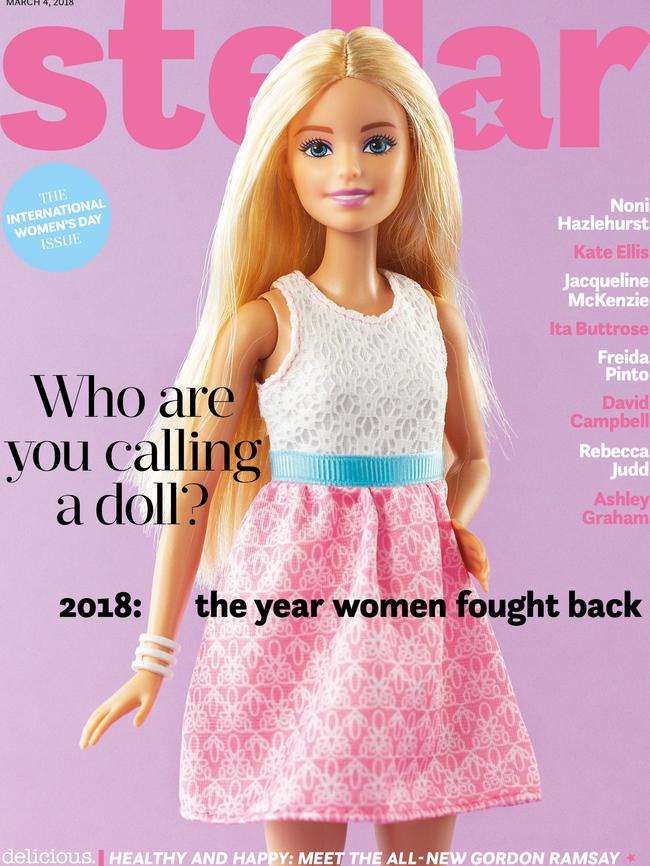
And she warns that even in heady times such as these — when so many young women, along with plenty of younger men, are working to boost inclusivity for women at every level — progress is not necessarily permanent. “Some of the vitriol reminds me not everyone’s on that page with me,” says Lumby, referring to the sometimes-shocking tone of the discussion around women during the first 14 monthsof the Trump administration.
Dr Lauren Rosewarne, who is an academic and gender commentator, says that while social media has thrown a swell of new energy behind the decades-long work of feminists to achieve equality, it could still take time to reveal if “the boys’ club silencing women” is really changing, especially at work. And she too — like Lumby — warns that women cannot afford to be complacent and that vigilance is vital.
“Progress isn’t necessarily inevitable,” Rosewarne says. “It’s something that has to be constantly worked on. Particularly with women’s rights, for example, or access to reproductive health. These aren’t necessarily ‘forever’ rights; they are always political footballs. You have to be mindful these things aren’t given to women. It’s up to us to take them.”
The Never Before Barbie dolls are a limited edition range and are not for sale.


